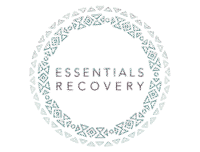Recovery from addiction is a journey filled with challenges, victories, and ongoing learning. While many individuals successfully navigate their daily routines in sobriety, crises can arise unexpectedly and threaten progress. A crisis may involve emotional upheaval, personal loss, relapse triggers, or environmental stressors that place an individual at risk of returning to substance use. Developing effective crisis management strategies is essential for maintaining sobriety, protecting mental and emotional well-being, and ensuring continued growth in recovery.
Understanding Crises in Recovery
A crisis in recovery is any situation or event that causes extreme stress or threatens an individual’s stability and progress. Crises may be internal, such as intense cravings, mental health episodes, or unresolved trauma. They may also be external, including conflicts with family or friends, financial difficulties, or sudden changes in living circumstances. Recognizing what constitutes a crisis is the first step in managing it effectively.
Understanding that crises are often temporary and manageable is key. Recovery is a process, and encountering challenges does not signify failure. Viewing crises as opportunities for growth and skill development allows individuals to approach these situations with resilience and proactive strategies.
The Importance of Preparation
Effective crisis management begins with preparation. Anticipating potential high-risk situations, emotional triggers, and personal vulnerabilities allows individuals to develop strategies before a crisis occurs. Preparation may include creating a list of coping strategies, identifying supportive contacts, and establishing clear steps to follow during challenging moments.
Preparation also involves developing self-awareness. Individuals who understand their personal triggers, stress responses, and early warning signs are better equipped to intervene before a situation escalates. By taking proactive measures, people in recovery can reduce the intensity of crises and respond in ways that support long-term sobriety.
Building a Strong Support Network
A reliable support network is critical in crisis management. Family members, friends, sponsors, therapists, and peer groups provide emotional support, guidance, and accountability during difficult times. Knowing that someone is available to listen, offer advice, or assist in problem-solving can significantly reduce the risk of relapse.
Support networks also provide perspective. During a crisis, emotions can cloud judgment and amplify stress. Trusted individuals help individuals gain clarity, assess options objectively, and make decisions aligned with recovery goals. Encouraging regular communication with support networks strengthens relationships and ensures that help is accessible when needed most.
Identifying Early Warning Signs
Recognizing early warning signs of a potential crisis allows for timely intervention. These signs may include changes in mood, sleep patterns, appetite, or behavior. Increased irritability, social withdrawal, or obsessive thoughts about substance use are common indicators that a crisis may be developing.
Monitoring these signs requires self-awareness and mindfulness. Individuals can use journaling, meditation, or regular reflection to track emotional and behavioral patterns. Early recognition enables individuals to implement coping strategies promptly, preventing escalation and protecting their recovery.
Developing Coping Strategies
Coping strategies are essential tools for managing crises effectively. These strategies can include relaxation techniques such as deep breathing, progressive muscle relaxation, or guided meditation. Physical activity, hobbies, or creative outlets provide healthy distractions that reduce stress and promote emotional balance.
Cognitive strategies are equally important. Reframing negative thoughts, practicing self-compassion, and focusing on achievable goals can help individuals manage intense emotions and maintain perspective. Developing a personalized toolbox of coping strategies ensures that individuals have practical, accessible techniques to rely on when facing a crisis.
Creating a Crisis Action Plan
A crisis action plan is a structured guide that outlines specific steps to follow during challenging situations. The plan may include identifying triggers, listing coping strategies, and specifying supportive contacts to reach out to for help. By having a written plan, individuals can respond quickly and effectively, even under stress or emotional pressure.
Crisis plans may also include contingency strategies for unexpected events, such as transportation disruptions, emergency housing needs, or medical concerns. This proactive approach minimizes uncertainty, reduces stress, and provides a sense of control during unpredictable circumstances.
Utilizing Professional Support
Professional support is vital in managing crises effectively. Therapists, counselors, and addiction specialists provide guidance, interventions, and structured strategies to navigate high-risk situations. Professional support may involve crisis counseling, therapy sessions, or connecting individuals to community resources.
Professionals also help individuals develop problem-solving skills, address underlying emotional challenges, and strengthen resilience. Accessing professional support during a crisis ensures that interventions are evidence-based, personalized, and focused on maintaining long-term recovery goals.
Practicing Mindfulness and Emotional Regulation
Mindfulness and emotional regulation are crucial components of effective crisis management. Mindfulness practices help individuals remain present, reduce reactivity, and respond thoughtfully rather than impulsively. Techniques such as focused breathing, meditation, or body scans allow individuals to observe emotions without judgment and regain control over their responses.
Emotional regulation strategies, including cognitive reframing, identifying triggers, and practicing relaxation techniques, help individuals manage stress and maintain balance during crises. Developing these skills promotes resilience and reduces the likelihood of relapse or self-destructive behavior.
Learning from Past Experiences
Reflecting on previous crises provides valuable insights for future management. Individuals can analyze what strategies worked, what challenges arose, and what lessons can be applied in similar situations. This reflection strengthens problem-solving abilities and builds confidence in managing future challenges.
Acknowledging past successes reinforces self-efficacy and encourages a proactive approach to recovery. By viewing crises as learning opportunities, individuals develop a growth-oriented mindset that enhances resilience and long-term stability.
Strengthening Relapse Prevention Integration
Crisis management and relapse prevention are closely linked. Effective crisis strategies often overlap with relapse prevention techniques, including identifying triggers, using coping strategies, and engaging support networks. Integrating these approaches ensures that individuals are equipped to handle both everyday challenges and unexpected emergencies.
A comprehensive relapse prevention plan can include specific crisis response components, such as emergency contacts, coping tools, and step-by-step actions for high-risk situations. This integration enhances preparedness, reduces stress, and reinforces commitment to maintaining sobriety.
Encouraging Self-Care During Crises
Self-care is essential during crises, as stress and emotional upheaval can deplete energy, motivation, and resilience. Maintaining regular routines, proper nutrition, adequate sleep, and physical activity supports overall well-being and equips individuals to respond effectively to challenges.
Engaging in activities that bring joy, relaxation, or a sense of purpose provides emotional balance and helps individuals manage stress without relying on substances. Self-care practices reinforce the principles of recovery and strengthen the individual’s capacity to handle crises constructively.
Leveraging Community Resources
Community resources play a significant role in crisis management. Local support groups, recovery centers, helplines, and social services can provide immediate assistance, guidance, and safe spaces during emergencies. Connecting with these resources in advance ensures that individuals know where to turn when challenges arise.
Community engagement also fosters a sense of belonging, reduces isolation, and provides additional layers of support. Being aware of available resources empowers individuals to act proactively and access help quickly, minimizing the impact of crises on recovery.
Maintaining Flexibility and Adaptability
Crises are unpredictable, and effective management requires flexibility. Individuals must be willing to adapt their strategies, adjust plans, and seek alternative solutions as circumstances evolve. Rigidity in approach can increase stress and limit problem-solving capacity, whereas adaptability enhances resilience and confidence.
Developing a mindset that embraces change and views challenges as opportunities for growth strengthens recovery and equips individuals to handle future crises with greater ease and confidence.
Building Long-Term Resilience
The ultimate goal of crisis management in recovery is to build long-term resilience. By learning to navigate crises effectively, individuals develop skills, confidence, and coping mechanisms that serve them well beyond the immediate situation. Resilience supports sustained sobriety, emotional well-being, and overall quality of life.
Through preparation, support networks, professional guidance, and adaptive strategies, individuals strengthen their ability to face challenges head-on and maintain a stable, fulfilling recovery journey. Resilience is cultivated over time and reinforced through consistent practice, reflection, and engagement with supportive communities.
Conclusion: Navigating Crises with Confidence
Crises are an inevitable part of life, and recovery does not shield individuals from unexpected challenges. However, with effective crisis management strategies, individuals can navigate difficult situations without compromising their sobriety or well-being. Preparation, support, coping strategies, mindfulness, and professional guidance form the foundation of a strong crisis management plan.
By integrating these strategies into daily recovery practices, individuals develop the skills, resilience, and confidence needed to manage stress, avoid relapse, and continue progressing toward long-term recovery goals. Recognizing crises as opportunities for growth and learning empowers individuals to respond proactively, embrace personal strength, and maintain a fulfilling, substance-free life. Call us today at 855-509-1697.



